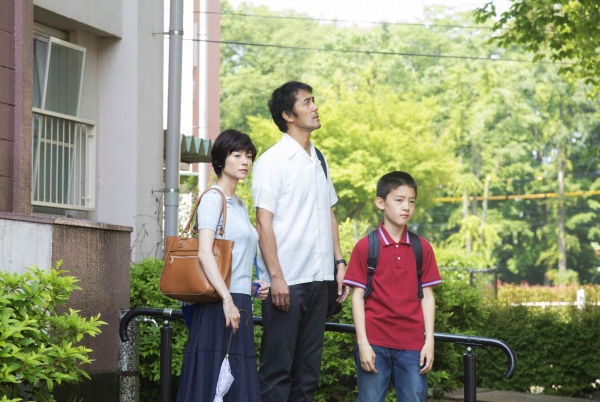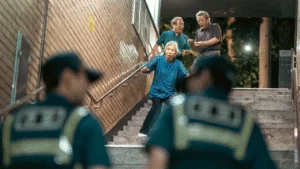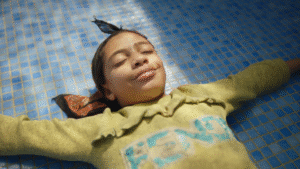
Acclaimed Japanese filmmaker Hirokazu Koreeda appears to be a keen observer. It is perhaps in the detailing, he tends to know his characters inside out. Had his actors ever questioned what his lead (Ryota) would be doing on a New Year night, Koreeda would have had a pointed reply. With such a fine eye for intricacies and an inimitable style of creating empathy on paper, familial relationships are safe in Koreeda’s hands. Not one to invest in alpha male syndrome, his latest After The Storm (海よりもまだ深く) is layered and truthful to life and its ironies.
Interestingly enough, this subtle drama lets your mind ponder. It is all up to whose state of being you relate the most to. The wayward but much vulnerable Ryota, the family matriarch attempting her son’s reunion with his estranged wife, or the sister who is stern but compassionate – there are plenty of perspectives worth examining.
After The Storm, on the other hand, is one of the chattiest films Koreeda ever made. He allows his leads to yammer like there’s no tomorrow. It wouldn’t be wrong to state that the duration taken by these conversations to establish Ryota’s priorities and insecurities aren’t totally engrossing.
Reminiscent of the director’s own Like Father, Like Son, Ryota’s bonding with his son is slow, believable. The timely reference to Ryota’s deceased father and how habits passed on through generations is alarming. The mother at one point exclaims why men can’t ever live and linger in the present. Their life is all about the dubious past or a dreamy, unattainable future. This very philosophy in writing directs the film to its very ‘accepting’ climax. If expectations were for sparks to fly or eyelashes to flutter, Koreeda gives you none.
The writer-director renders the elderly Kilin Kiki be the film’s consciousness. Like how she suggests a dish ought to e made, “One should leave it overnight for the flavour to absorb. Much like people.” She is a plaintive picture of hope and fortitude. Almost an allegory, the ‘storm’ in the film doesn’t wash-down the differences. Ryota’s wife’s Kyoko (Yōko Maki) is obstinate in an astounding fashion that we relate to her bitterness. Ryota’s advancements for a moment of intimacy looks borderline sinful.
Koreeda’s protagonist, however, deserves commands great sympathy although he would rank last in altruism. Living a life of constant denial, Ryota is the miserable everyman. Nevertheless, the writer’s attempt to sprinkle wry humour into his dry state of being works bigtime. Hiroshi Abe enacts Ryota with reasonable understanding. Yet, it is Kirin Kiki who stirs up quite a storm with her crowd-pleaser of a mommy act. No, it isn’t completely about her one-liners but about certain warmth and kindness she brings into each frame.
On the whole, Hirokazu Koreeda’s After The Storm is truthful in embracing life the way it is. Living your dreams is a perfect choice to take but, however, comes with a cost, says the film. In true Koreeda-style, tender moments are absolute triumphs. The charming father-son tête-à-tête in the storm-struck park, for instance, is worth a thousand smiles! Can we have more such writer-directors, please?
Rating: ★★★★
(The film was screened at 18th MAMI Mumbai Film Festival with Star held from 20-27 October 2016.)

